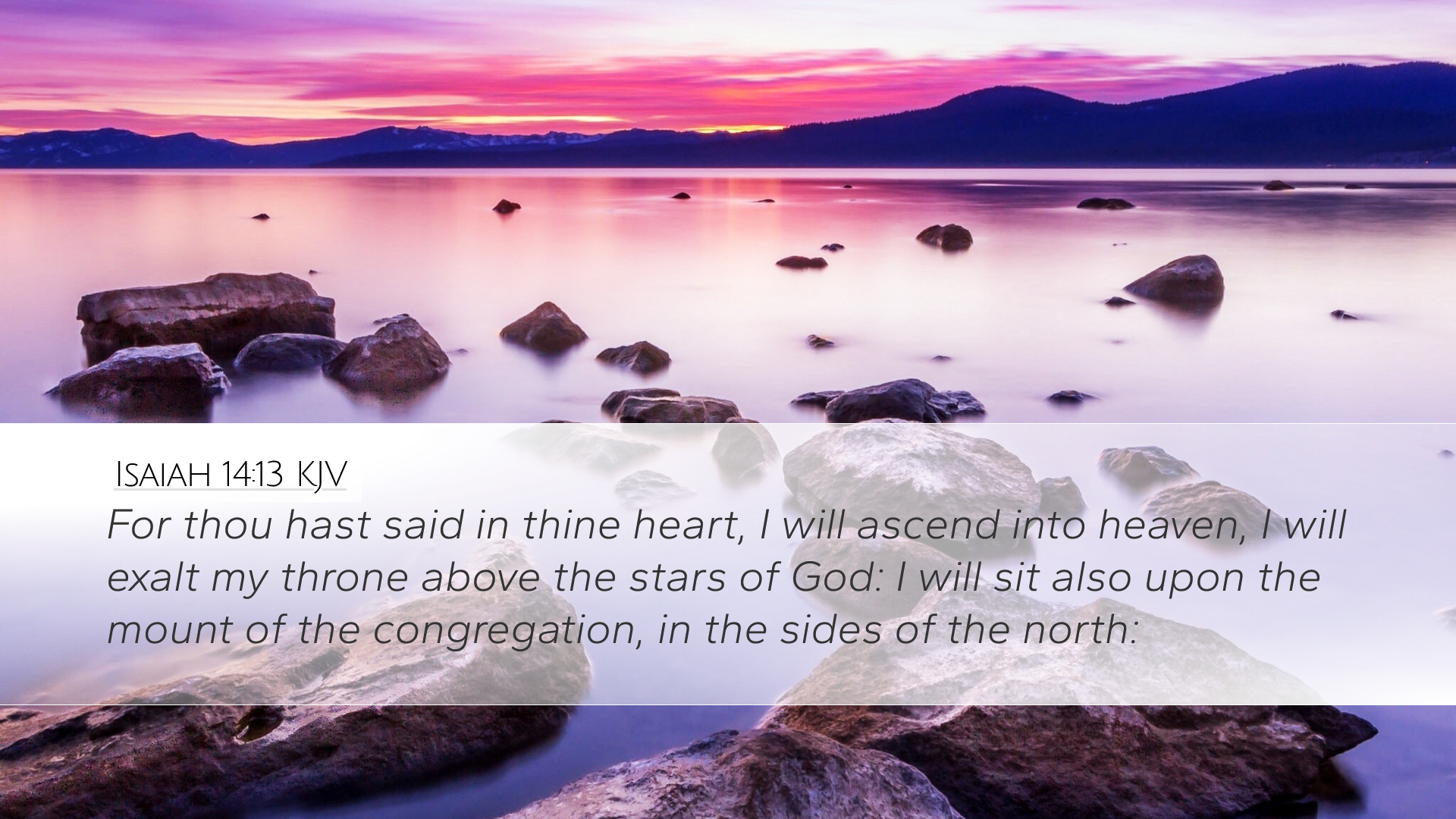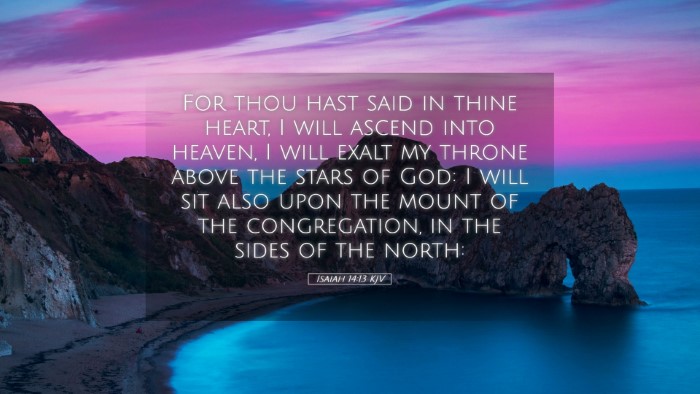Commentary on Isaiah 14:13
Verse Context: This verse is a part of a passage concerning the fall of Babylon, detailing the pride and downfall of its king. It provides a striking contrast between the king's aspirations and the eventual reality of judgment.
Verse Analysis
Isaiah 14:13 states, "For you have said in your heart, 'I will ascend to heaven; above the stars of God I will set my throne on high; I will sit on the mount of assembly in the far reaches of the north.' This verse illustrates the arrogance of the king of Babylon, symbolizing a broader archetype of prideful rebellion against God.
Theological Insights
-
Pride and Ambition: Matthew Henry emphasizes that the king's ambition leads him to seek a throne above God Himself. It is a reminder of the fundamental sin—pride—that leads to one's downfall.
-
Divine Judgment: Albert Barnes notes that such prideful aspirations result in divine retribution. The desire to exalt oneself against God’s order is met with inevitable judgment, a principle observable throughout Scripture.
-
Ultimate Sovereignty of God: Adam Clarke points out the futility of attempting to rise above God. The phrase "above the stars of God" reflects the ultimate jurisdiction and authority that God holds over all creation.
Spiritual Lessons
-
The Danger of Aspirations: The verse serves as a cautionary tale about the spiritual dangers of unbridled ambition. Believers are reminded to align their desires with God’s will rather than attempting to assert their sovereignty.
-
The Nature of Rebellion: The king’s rebellion is indicative of a broader tendency in humanity to seek autonomy from God. The lesson encourages self-reflection on areas of our lives where we may unintentionally exalt ourselves above God’s authority.
-
Hope of Restoration: Even amid judgment, there is hope for those who repent. The prophetic nature of Isaiah holds out grace for God's people while warning others of the consequences of pride.
Historical Context
This prophecy was delivered during a time of significant turmoil for Israel and its neighbors. Babylon was a dominant empire, and its leaders often epitomized the antithesis of God’s intentions. Understanding this historical backdrop provides depth to the text, as it reflects God’s promise of eventual justice and vindication for His people.
Comparative Interpretations
Ancient Interpretations: In the early church, this passage was often seen as a representation of Satan’s fall. The pride exhibited by the king of Babylon was paralleled with that of Lucifer, who sought to cast off his created role and ascend above God.
Modern Application: Today, this text challenges believers to examine societal leaders and movements that promote self-exaltation over humble servitude. It encourages a critical approach to power structures that may reflect the same traits as the king of Babylon.
Conclusion
Isaiah 14:13 serves as a profound reminder of the dangers of pride and rebellion against God. It encourages pastoral reflection, scholarly inquiry, and spiritual maturity among believers. As we contemplate the themes raised in this verse, may we strive to seek God’s throne rather than elevate ourselves, acknowledging His eternal sovereignty and authority.


